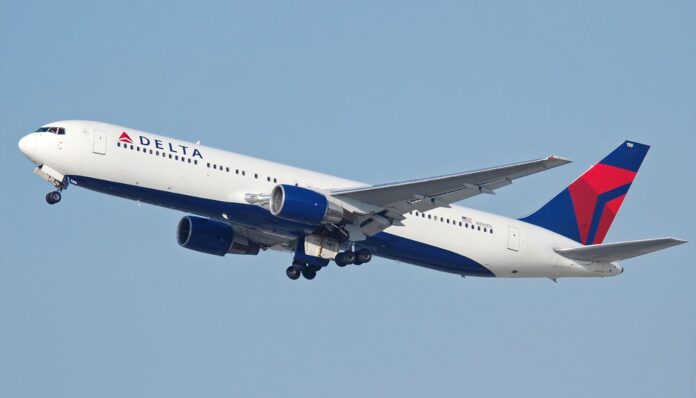Delta Air Lines is using artificial intelligence to generate personalised prices for about 3% of its US domestic flights, according to company executives. The system, developed by Israeli startup Fetcherr, is trained on Delta’s internal data, such as historical bookings, flight schedules, and seat availability, and combines it with external variables like weather and market trends.
Together, this enables the algorithm to estimate each customer’s willingness to pay and set the highest price they’re likely to accept. On its second-quarter earnings call on July 10, Delta President Glen William Hauenstein said the airline’s goal is to use Fetcherr to price 20% of its tickets by year’s end.
“We’re in heavy testing phase,” he said. “We like what we see. We like it a lot and we’re continuing to roll it out.” This isn’t a huge surprise, given a 2022 study from Yale University found that personalised pricing increased profits for airlines by up to 5%.
Typically, Delta’s Pricing team defines the fare levels available for a flight, and then the Revenue Management team determines the number of seats available at each price point, based on static factors such as previous demand and booking pace. But, as AI can take into account dynamic factors in real-time, it can continuously adjust fares and seat availability, leading to more profitable pricing decisions.
During Delta’s Investor Day in November, Hauenstein said that he foresees the Pricing and Revenue Management processes getting “melded together” and performed by an AI “super analyst” that is “working 24/7,” according to reporting by View from the Wing. At the time, he said that Fetcherr was pricing 1% of Delta’s inventory.
He also hinted that one day the Fetcherr system could be in charge of all of the airline’s pricing, foreseeing a “full re-engineering of how we price, and how we will be pricing in the future,” according to a separate report from the View from the Wing.
Airlines use AI to avoid pricing too high and losing customers, or too low and losing revenue
Fetcherr’s AI is already in use by other airlines, including Azul, Virgin Atlantic, WestJet, and Viva Aerobus. Azul was the first to publicly confirm its partnership with the company in 2022. The idea is to present higher prices to types of flyers who are less price-sensitive, such as business travellers, who often have loyalty points with an airline that they value more than marginal savings with a competitor, and who typically have larger travel budgets.
Airlines also want the more competitive prices to show up only to leisure travellers who will shop around. By using AI to pinpoint exactly who needs to see a discount for them to press ‘buy’, they don’t need to offer the lower prices so widely and risk revenue loss. Essentially, the AI determines the maximum price each individual is willing to pay, then presents that price accordingly.
The ethics of personalised pricing is not clear-cut
Many consumers are aware of personalised pricing in air travel and try to avoid it by withholding their data, such as by using incognito mode, VPNs, or browsing as a guest instead of logging in. However, avoiding data sharing may become less appealing if airlines begin offering meaningful benefits, such as extra legroom, in exchange for signing up with them.
These deals are likely to become more meaningful as AI enables even deeper personalisation. Yet, the absence of modern, AI-specific regulations allows these systems to operate as black boxes, with no requirement to disclose what data they are trained on or what inputs they use in real-time. When customers are not informed about why they are seeing a particular price, they are more likely to accept a bad deal without questioning it.
George Slover, General Counsel at the Center for Democracy and Technology, wrote in a September blog post that a seller might consider a “consumer’s income, assets, debts, and financial condition and history” to assess the “urgency” of their purchase, ultimately concluding they are “more susceptible to sales-pitch puffery or pressure.”
At least a dozen US states have proposed or enacted legislation targeting so-called “surveillance pricing,” where personal data is used to generate a price, and some federal laws already prevent rates from being based on sex or ethnicity. Arizona Senator Ruben Gallego claimed that Delta’s use of Fetcherr constituted “predatory pricing” on X and said that he “won’t let them get away with this.”
The ethics of AI in pricing is just the tip of the iceberg. Algorithms are also influencing who gets a job and who even gets seen by recruiters.
